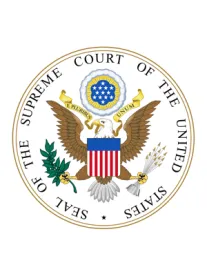In a 6-3 decision authored by Justice Gorsuch on June 15, 2020, the United States Supreme Court held that Title VII’s prohibition on discrimination “because of…sex” includes discrimination on the basis of sexual orientation and gender identity. Bostock v. Clayton County, No. 17-1618 (590 U.S. ___ (2020). In doing so, the Court made clear that employers across the country are now prohibited from terminating an employee solely because they are gay or transgender – a decision that will have the most far reaching implications in the approximately 25 states where discrimination on the basis of sexual orientation and gender identity is not already prohibited by state law.
Relevant Background
The Court’s decision resolves three previously consolidated cases in which an employer terminated an employee because of their sexual orientation or gender identity: Bostock; Altitude Express v. Zarda; and R.G. & G.R. Harris Funeral Homes, Inc v. EEOC. In Bostock, Gerald Bostock, a long-time Clayton County employee, was terminated for conduct “unbecoming” of a county employee after influential members of the community discovered that he was participating in a gay softball league. Bostock brought suit against the county under Title VII alleging unlawful discrimination on the basis of sex. However, in May 2018, the Eleventh Circuit held that Title VII does not prohibit discrimination on the basis of sexual orientation and dismissed the case as a matter of law.
In Zarda, Donald Zarda, a skydiving instructor, was terminated after he told a female client that he was gay in an effort to make her more comfortable with close contact during a skydiving lesson. After the jump, the client’s boyfriend told the employer about Zarda’s sexual orientation, resulting in his termination. Zarda brought suit under Title VII but unlike the Eleventh Circuit, the Second Circuit held that discrimination on the basis of sexual orientation does violate Title VII and allowed the case to proceed.
In R.G. & G.R. Harris Funeral Homes, the plaintiff, Aimee Stevens, presented as male when initially hired as a funeral director. After six years with the employer, she wrote a letter to the owner explaining that she planned to “live and work full-time as a woman.” Like Bostock and Zarda, Stevens was terminated shortly thereafter and brought suit under Title VII. The Sixth Circuit agreed with the Second Circuit and held that Title VII prohibits employers from firing employees because of their status as transgender.
As we previously reported, in April of 2019, the Supreme Court granted certiorari to resolve the circuit split and to decide whether Title VII’s prohibition of discrimination on the basis of sex also encompasses discrimination on the basis of sexual orientation and gender identity.
The Court’s Decision
The Supreme Court agreed with the Second and Sixth Circuits and held that “[a]n employer who fires an individual for being homosexual or transgender fires that person for traits or actions it would not have questioned in members of a different sex.” In other words, “[s]ex plays a necessary and undistinguishable role in the decision.” The Court’s rationale is significant here in that it looked to the express terms of the statute in reaching this decision despite the fact that sexual orientation and gender identity are not explicitly mentioned in the statute. As the dissent points out, “few in 1964″ would have expected Title VII to apply to discrimination against homosexual and transgender persons. Nevertheless, the majority explained that “it is ultimately the provisions of those legislative commands rather than the principal concerns of our legislators by which we are governed.”
To illustrate, the Court poses a hypothetical in which a model employee brings their wife to a holiday party but the employer has a policy of firing any employee known to be homosexual. According to the Court, “[i]f the policy works as the employer intends, the answer depends entirely on whether the employee is a man or a woman.” While the employer’s “ultimate goal” may be to discriminate on the basis of sexual orientation alone, the employer also necessarily discriminates on the basis of sex, which is “exactly what Title VII forbids.”
The same is true, the Court explains, with respect to gender identity. “An employer who fires a transgender person who identified as a male at birth but now identifies as a female…penalizes a person identified as male at birth for traits or actions that it tolerates in an employee identified as female at birth.” In either case, because “changing the employee’s sex would have yielded a different choice by the employer – a statutory violation has occurred.”
In the decision, the Court rejected several arguments raised by the employers, including the position that discrimination on the basis of sexual orientation and gender identity applies equally to male and female employees, and therefore does not constitute discrimination “because of…sex.” The Court flatly rejected this argument, making clear that “Title VII protects individuals of both sexes from discrimination, and does so equally.”
Chief Justice Roberts joined the majority opinion, along with Justices Ginsberg, Breyer, Sotomayor and Kagan. Justice Alito filed a dissenting opinion with Justice Thomas while Justice Kavanaugh filed a separate dissent. Notably, Justice Kavanaugh concluded his opinion by acknowledging the “important victory achieved today” by the LGBTQ community; however, he believes it was Congress’s role, not the Court’s, to amend Title VII.
Takeaways
Title VII now prohibits discrimination on the basis of gender identity and sexual orientation in all 50 states – but what exactly does this mean for employers? Before June 15, 2020, approximately 25 states already prohibited discrimination on the basis of sexual orientation and/or gender identity under state and/or local law. So while the decision will likely have little practical effect for employers in those jurisdictions, employers in other locations will need to review and revise their existing policies and training materials, and ensure relevant personnel are trained on these new requirements.
The decision also casts doubt on a new rule published by the Department of Health and Human Services (HHS) that rolled back protections for transgender Americans under the Affordable Care Act. Over the past several years, HHS regulations have incorporated language to prohibit discrimination on the basis of sexual orientation and gender identity. The new rule seeks to reverse this trend and return to “the plain meaning of ‘sex’ as a biological binary.” The Court’s reasoning that discrimination on the basis of sexual orientation and gender identity is inherently discrimination on the basis of sex could make it more difficult for HHS to defend the rule in any forthcoming litigation.





 />i
/>i


